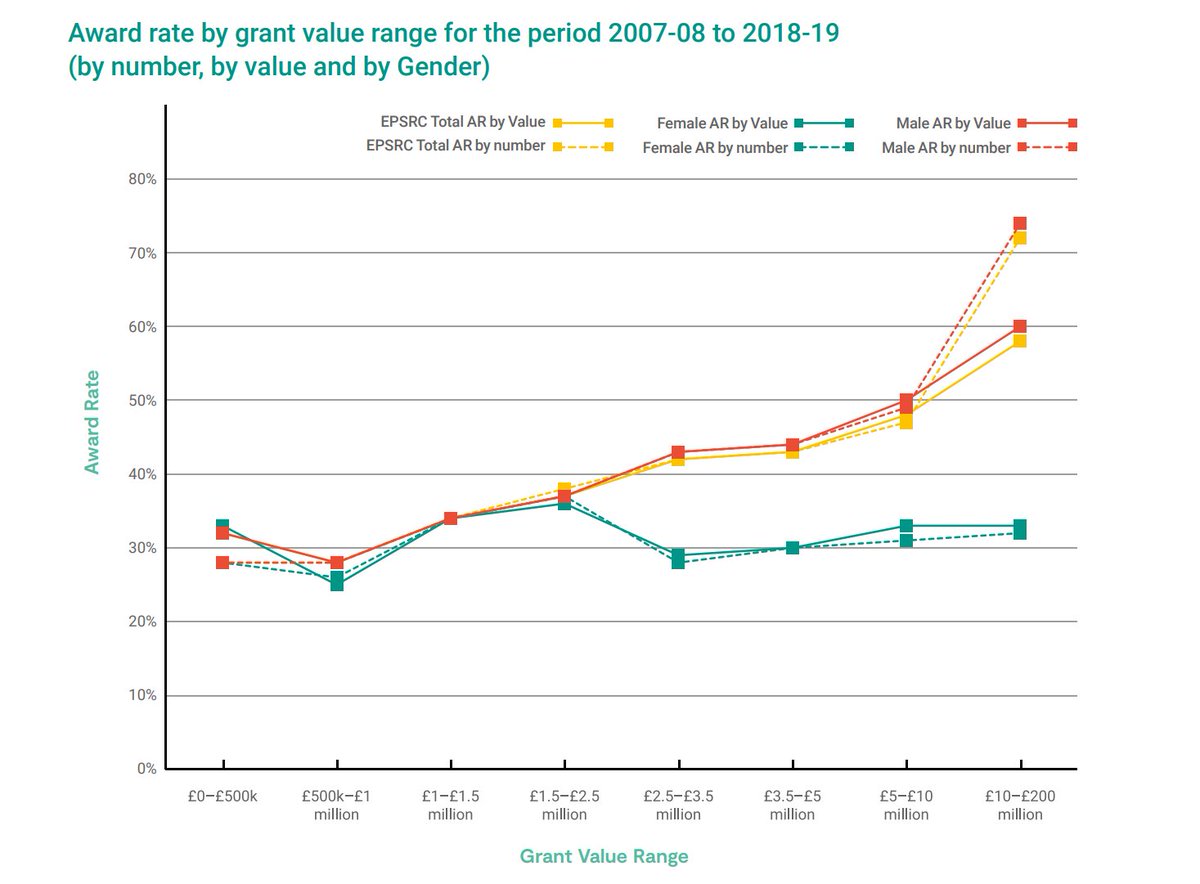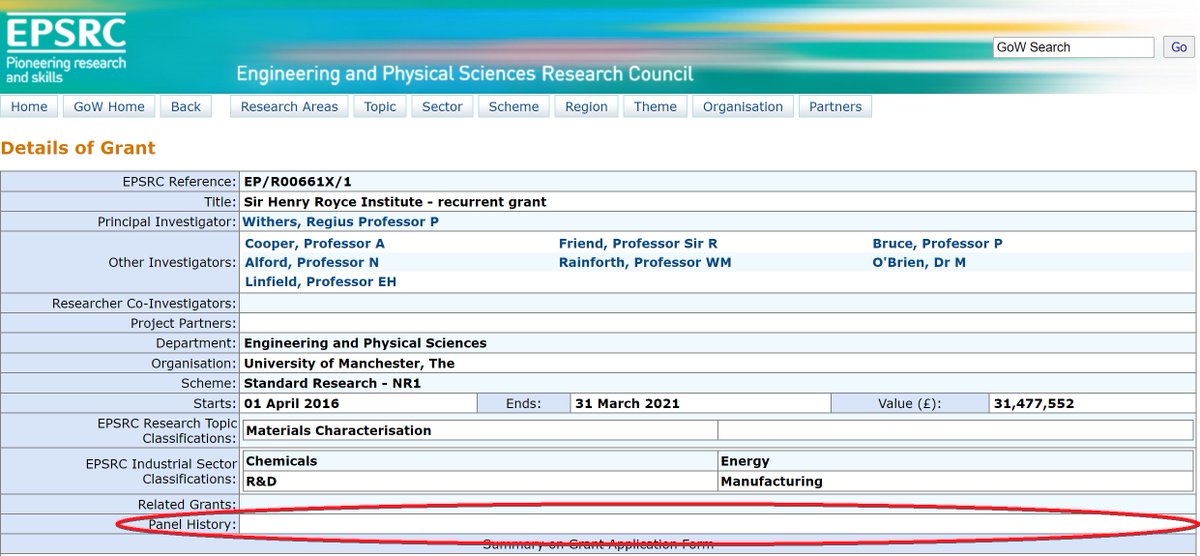The second key finding of the @EPSRC report on gender in the grant portfolio is basically that women have lower success rates than men when applying for high value grants. The chart of award rate by grant value range is so striking that we’re going to show it again here:
In many ways, what’s striking here is not the lowish success rate for women applying for very large amounts of money, but the very high success rate for men.
For example the “Male AR by number” data tells us that roughly three quarters of men applying for >£10M get awarded the money they asked for. That compares to a typical ~30% success rate for lower grant values, with some recent responsive mode rounds having success rates <20%.
Something feels off here. Are these very high success rates for men applying for very large grants really consistent with a picture of open competition, where everyone in the community has equal opportunity to apply for large sums of money?
Let’s have a look at an example of a grant greater than £10M: EP/R00661X/1 - one of several large grants awarded to establish the Sir Henry Royce Institute - “The UK’s National Institute for Advanced Materials Research and Innovation”. https://gow.epsrc.ukri.org/NGBOViewGrant.aspx?GrantRef=EP/R00661X/1">https://gow.epsrc.ukri.org/NGBOViewG...
The grant has a male PI and seven men as co-investigators. To the best of our knowledge all of these men are white. All of them lead or have led “Royce” activity in their Institutions - a position of considerable power and influence.
We can find no record of an open competition for this funding and grants on the web does not give any details for any panel at which applications for this funding were discussed.
The decision making process around founding and funding the Sir Henry Royce Institute was a political one - it was announced by George Osborne in his Autumn Statement in 2014, who sited the Institute in Manchester as part of the “Northern Powerhouse”. https://www.theguardian.com/science/political-science/2014/dec/04/northern-powerhouse-mini-me-science-policy">https://www.theguardian.com/science/p...
This illustrates the political complexities involved in the decisions to award these large sums of money, and the fact that @EPSRC and more broadly @UKRI_News may not always have the power to implement equity policies.
What impact does political involvement in funding decisions have on equity? We don’t know. We campaigned for a @commonsSTC #MyScienceInquiry on the impact of funding policy partly to address these issues & are waiting for the outworkings of that campaign. https://www.youtube.com/watch?v=6owh4Rw6wuk&t=7s">https://www.youtube.com/watch...
Our investigations have found only two awards over £10M to women as principal investigator: Prof. Rachel McKendry ( https://gtr.ukri.org/projects?ref=EP%2FK031953%2F1)">https://gtr.ukri.org/projects... and Prof. Dame Xiangqian (Jane) Jiang ( https://gtr.ukri.org/projects?ref=EP%2FP006930%2F1).">https://gtr.ukri.org/projects...
Both of these awards were part of calls for multi-organisation grants and include more than 50 involved organisations and more than 15 investigators each. What are the institutional barriers and the hurdles within EPSRC processes which prevent women leading such large efforts?
Award rate data for the £10-200M range may be complicated by the inclusion of national institutes. However, at the £5-10M range, roughly half of men are awarded the money they asked for, but only a third of women. These grants span the EPSRC portfolio
EPSRC strategy funnels a substantial amount of funding into “longer larger” grants, when the data shows stark differences in outcome between men and women. Is this justified? Should this funding be channeled into lower value grant processes with more equitable outcomes?
We recognise that these are difficult and contentious questions - but they need to be discussed. Reply to this thread with your thoughts. #TellTheTiger. But also tell the EPSRC by filling in their survey here: https://www.surveymonkey.co.uk/r/KGN98VK ">https://www.surveymonkey.co.uk/r/KGN98VK...

 Read on Twitter
Read on Twitter



